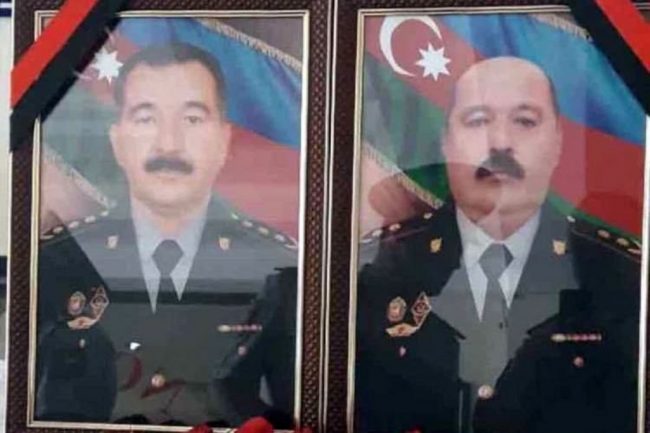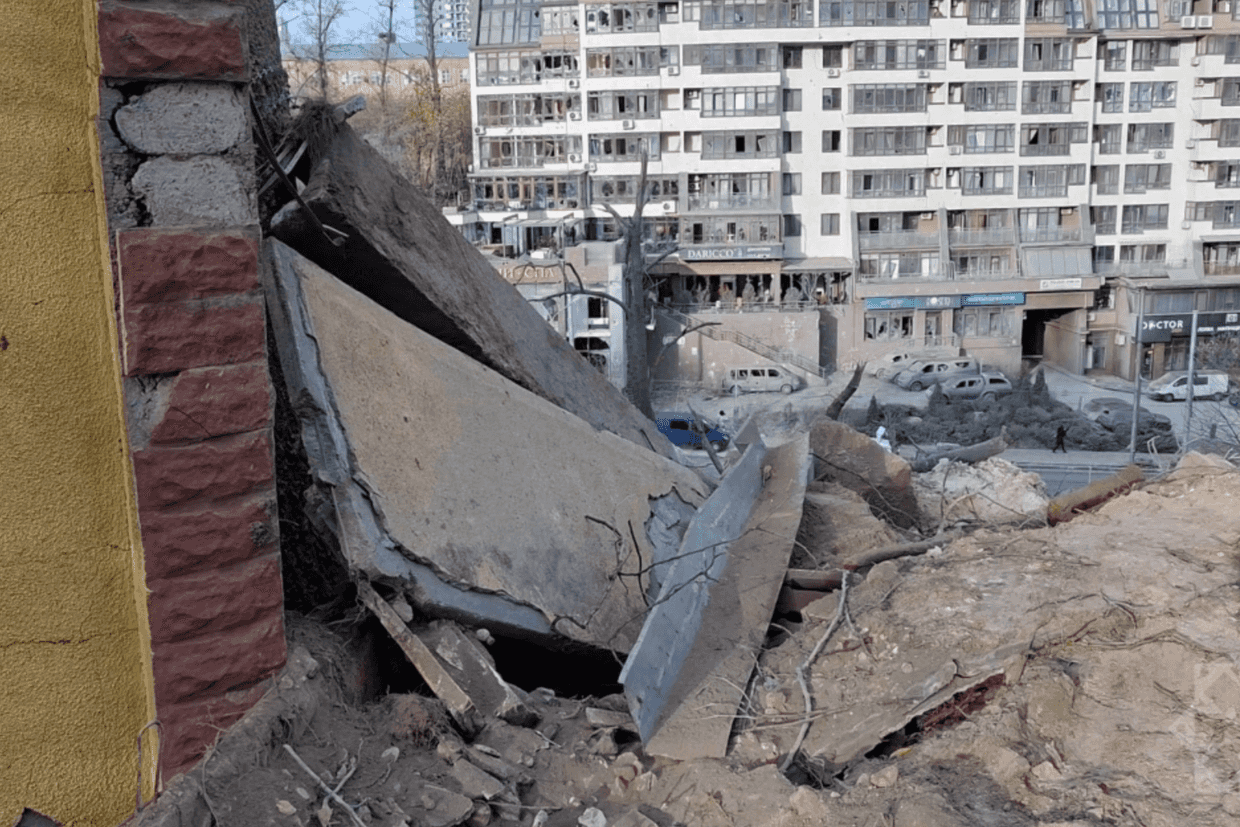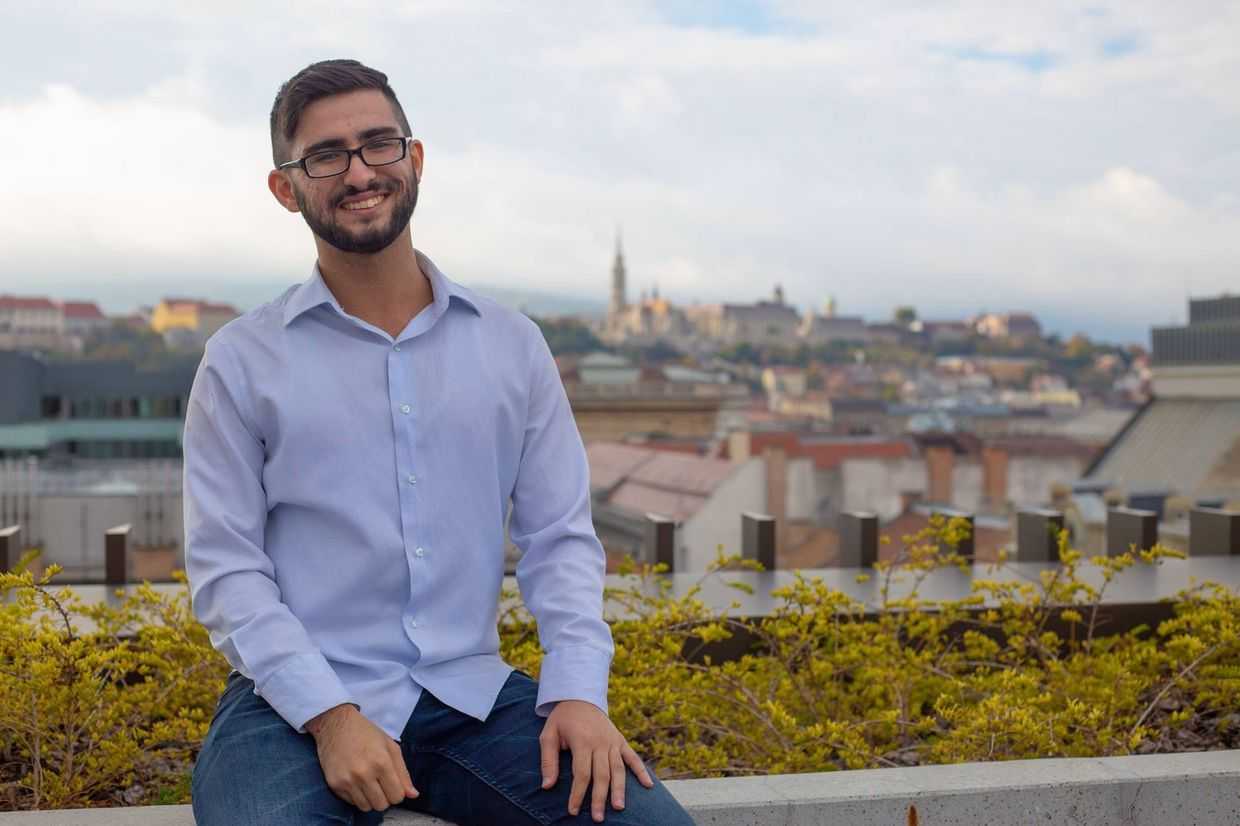

 Two senior police officers were killed in Azerbaijan’s second city, Ganja, on Tuesday during an anti-government protest. The demonstration was reportedly organised against local mayor Elmar Valiyev, who survived an assassination attempt the previous week.
Two senior police officers were killed in Azerbaijan’s second city, Ganja, on Tuesday during an anti-government protest. The demonstration was reportedly organised against local mayor Elmar Valiyev, who survived an assassination attempt the previous week.
In a joint press-release on 10 July, the Prosecutor’s Office, Interior Ministry, and State Security Service announced that police Colonel Ilgar Balakishiyev and Lieutenant-Colonel Samad Abbasov were fatally wounded with sharp objects carried by members of a crowd of 150–200 people. The statement identified the crowd as ‘supporters of a radical religious movement seeking to incite riots’. The authorities claimed they dispersed the rally after the attack and ‘restored order’, arresting 40 demonstrators.
On Thursday the authorities said they had apprehended Farrukh Gasimov, one of the two men wanted for the killings. The other, Rashad Boyukkishiyev, who authorities said has previous convictions for murder and robbery, remains at large.
The anti-government rally followed an assassination attempt against Mayor Elmar Valiyev on the evening of 3 July. According to officials, a 35-years-old Russian citizen, Yunis Safarov, was apprehended at the scene after shooting and injuring Valiyev and his bodyguard. Valiyev remains in hospital recovering.
Organised online
According to independent local news agency Turan, the 10 July rally was organised online by people who argued the attack on Ganja’s mayor was a result of his misrule. Police said that demonstrators were protesting the arrest of Safarov.
Avaz Hasanov, a human rights activist and director of Baku-based think-tank the Humanitarian Research Public Union, told OC Media the gathering was organised exclusively through social media, but that there was a lack of information about who the organisers were or what were their demands. Hasanov said that before the attack on the officers, the rally was peaceful with no weapons in sight or any active police intervention.
Murad Nasibbeyli, a PhD candidate in political science at Justus Liebig University of Giessen, also noted there were scarce reports of demonstrators’ actual demands. ‘We need to hear their voice and the public should be better informed. Unfortunately, there is not much information in this regard’, Nasibbeyli told to OC Media.
On 7 July, a video calling for the rally in Ganja was posted on YouTube which currently has more than 450,000 views.
‘I personally see Ganja events as a result of growing societal grievances, lack of economic equality, poor living conditions; corruption; all of this combined with the lack of a critical and independent civil society in the country. Had the authorities in Baku been transparent and ensured free and fair political competition with functioning institutions and civil society, these types of attacks could have been prevented’, Arzu Geybulla, an Azerbaijani journalist and political commentator, told OC Media, also confirming that the specific demands of the 10 July rally remain unclear to the rest of public. According to her, given the state of political freedoms in Azerbaijan and ‘highly corrupt judiciary’, the motives of the attacker might remain unknown for some time.
A botched assassination
According to the authorities, prior to pursuing Ganja Mayor Elmar Valiyev to kill him, Yunis Safarov assaulted a police officer from the Kapitalbank’s Ganja branch taking his handgun.
Law enforcement agencies said that Safarov returned to Ganja in 2007 after spending eight years in Qom, Iran, and later moving to Syria to undergo military training with Azerbaijani citizen Rasim Asadov. Officials claimed to have apprehended three other suspects belonging involved in planning the attack.
On 4 July, photos of Safarov following his arrest circulated on social media with visible marks of injuries on his face. The authorities denied he had sustained them while in custody, saying that they were a result of him resisting arrest. Safarov himself also denied any mistreatment, but some in Azerbaijan suggested he was pressured to do so.
According to Azerbaijani authorities, Safarov intended to kill Valiyev and other high-profile officials in order to destabilise the country and establish an Islamic State in Azerbaijan.
The Interior Ministry claimed to have found a video address by Safarov recorded for public distribution after the 3 July attack, in which he allegedly called for ‘killing the enemies of Islam’ in the name of the Muslim Unity, mentioning the movement’s leader Taleh Baghirzade. Baghirzade was arrested in November 2015 in a police crackdown in Nardaran suburb of Baku, a hotspot of the Shia community critical of the Aliyev government. The Muslim Unity movement denied that Safarov was a member. The video has not been released to the public.
Chief Military Prosecutor Khanlar Valiyev, brother of the wounded Ganja mayor, was cited in Minval as telling local newspaper Bizim Yol that the perpetrators were religious radicals, also adding that Safarov and his mother was Armenian.
On 11 July, while speaking to journalists about developments in Ganja, Foreign Ministry spokesperson Hikmat Hajiyev also made reference to Armenia, saying that ‘destructive forces along with Armenia’ were trying to ‘disrupt’ development and stability in Azerbaijan.
‘Religious motives’
On 7 July, a video was posted to the YouTube channel of online TV station Kanal13 in which, according to Turan, a woman claiming to be Safarov’s wife said that the ‘reckoning hand of Allah’ had reached Valiyev, after his. She insisted Yunis had no conflict with the mayor but ‘could not sit at home’ while Taleh Baghirzada remained in jail and that there was ‘long-lasting and systematic persecution of Shia Muslims’ living in Ganja. The woman also denied rumours that the mayor insulted Safarov’s sister, and that this was the motive behind the attack.
Local media reported frequent social media posts from Azerbaijani language users that were sympathetic to Safarov and glorified him as a fighter against social injustice.
Ali Hasanov, Assistant to the Azerbaijani President for Public and Political Affairs, stated on his Facebook page that Azerbaijan was facing a ‘synchronised ideological provocation’, from religious radicals, media connected to Armenian and Talysh ‘separatists’, and ‘domestic opposition’ outside Azerbaijan, including human rights activist Leyla Yunus.
Hasanov claimed that Azerbaijanis were not ‘sensitive about religion’, and so people interested in destabilising the country spread rumors for months, including in media articles, about Valiyev’s supposed misrule, and glorified the suspect after the attack.
‘Attempts to justify or find an excuse for terrorism for any reason are inexcusable, active members of social media and media representatives should not forget about the requirements of the relevant legislation and state interests in their posts, opinions, and commentaries’, Hasanov warned.
The Prosecutor General’s Office also threatened consequences for posts on social media. In a statement on 9 July, they said criminal proceedings would be launched into ‘open calls to terrorism’, spreading misleading information that incites panic, or calling on for a coup, including those posted in comments sections on Facebook, Twitter, and Instagram. They said they had already arrested 14 people.
In a statement on 11 July, former Foreign Minister Tofig Zulfugarov also lambasted sympathies on social media towards Safarov and the alleged killers of policemen. ‘Martyrs with propagandised signs of radical Shiism are represented as defenders of the rights of the oppressed’, complained Zulfugarov, making direct references to ‘some radical circles in the Iranian leadership’ that are ‘trying to destabilise the situation in Azerbaijan’.
Zulfugarov said that unless the Iranian authorities ‘neutralise the forces that committed the provocation’, Azerbaijan might reverse its policy of not allowing foreign forces to use its territory for ‘anti-Iranian activities’.
According to rights activist Avaz Hasanov, there is no reliable information linking Safarov to radical religious organisations, as his wife’s references to Safarov’s religious beliefs remain the only basis of the alleged attacks’ religious motivation. Hasanov told OC Media that while most Azerbaijani media coverage of the story was tightly controlled by the government, information circulated via social networks was a ‘mix of truth, emotions, and radicalism’.
Hasanov said it was unlikely that similar events would occur in other Azerbaijani cities, especially after the death of two policemen and possible religious radicalism. ‘This is felt in Azerbaijanis’ reactions online’, said Hasanov.
Speaking to OC Media, Arzu Geybulla noted the results of recent vox pop from Radio Azadlig in which a majority claimed to get their news online. ‘It tells you something about the television and print media in Azerbaijan’, said Geybulla.
Geybulla said that people are afraid to protest in Azerbaijan, so it is unclear if any immediate spillover should be expected elsewhere in the country. ‘Unless there are real changes on social, political, and economic levels domestically, where citizens are treated as humans, and the crackdown against independent civil society is no longer used as a tool used to silence opponents, we will keep seeing these type of sporadic forms of unrest whether violent or nonviolent’, said Geybulla.









